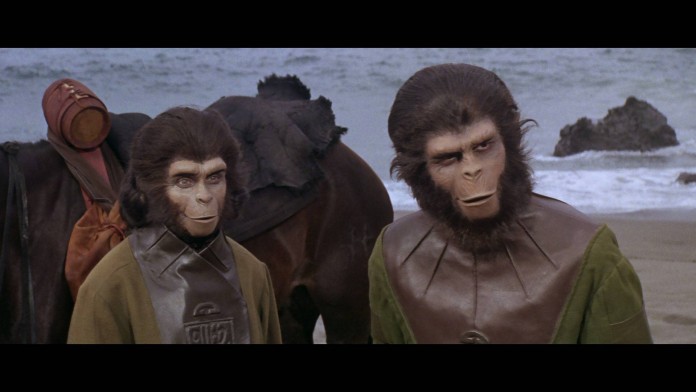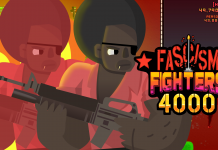Ah, what a science fiction book. I personally consider this to be a classic even though it was written in 1963 by Pierre Boulle. Usually, I’m not a huge fan of the science fiction genre. But I have to say, this book is excellent. I’m sure most people know the basic premise of the book, but for those who don’t, I’ll give you a bit of an outline.
Warning! Spoilers ahead:
This is a book about a group of scientists that travel in a ship towards the star, Betelgeuse, to study and perhaps colonize there. The main character, Ulysse Mérou, is a part of the crew that travels to the star. Once they make it to this solar system, they happen upon the planet, Soror, a planet that is distinctly similar to Earth. The group soon discovers that the planet is inhabited by humans, but these humans act like wild animals. Soon after the discovery, the scientists are captured with the wild humans they encountered, but by apes. Ulysse is taken to a science lab, separated from the rest of his scientist friends. The apes then proceed to experiment on him, testing his intelligence. Slowly, it is revealed to one of the chimpanzees, Zira, that he is intelligent. The two bonded and learned from each other. She then tells her husband, another chimpanzee scientist, about him and they arrange to bring Ulysse to an archaeological dig site. When they do bring him, everyone slowly realizes that humans used to be the dominant species on the planet. Ulysse, who has taken a female human from the planet and befriended her (and impregnated her) has to flee Soror because he has planted fear into the minds of the apes. The apes fear that he will start a new race and take over their world. And so, they plan to take his child from him along with his female companion, and that they may kill Ulysse himself, or remove a part of his brain. Zira and her husband help Ulysse to escape with his new family, and he sets his course for Earth. Yet, when he lands, it is apes who greet him on Earth.
Overall, I enjoyed the book a lot. The beginning is a little slow and slightly confusing but only because of the scientific vocabulary that’s used. I enjoyed that the story started with two apes finding Ulysse’s report of his time on Soror, as it doesn’t make the plot obvious and does catch the reader’s attention a bit. I also enjoyed the fact that during some parts of the story, the apes will interject in italics, giving the feeling that this truly is a report being read aloud. Also, at the very end, the apes express that the story is fiction rather than reality. By doing this, the author alludes to the outcome of the planet Soror, which is indeed Earth (at least as I interpreted the story.) By denying the possibility of a man who thinks with intelligence and is capable of thought at all, it is shown that the orangutans successfully buried the discovery that humans were once the dominant species. That, or perhaps Ulysse’s journal was released into space after he made it back to Earth, but before the time where he had traveled to Soror.
While I do love this book, it has a knack for irritating me. A lot. When the primitive humans are discovered by the scientists, the description of the nakedness of them all is exaggerated. In the beginning, I was tolerant of this and I understood the need for it. But the main character kept focusing on the nakedness of the women. He would describe it many times, and the descriptions felt unnecessary to me. He may be a man, but that doesn’t necessarily mean that the most important thing to him at that time should be the naked women. They just discovered a planet that supports life and has humans on it. Sure, it is a bit of a culture shock that people run around naked, but don’t focus on it the whole time. Then, later on in the book, Ulysse talks about how he loves his female companion, Nova, and how he wishes she would become like him and understand what he was saying. Yet, there are points where he beats her and speaks of how he enjoys scaring her. You love this primitive woman, yet you resort to hitting her and scaring her for your own entertainment? You sir, are a sick man, Ulysse. Of course, as a woman, this infuriates me. I realize the time period when the book was written was one in which women were not treated with as much respect as today, but it still angers me. So, the book itself doesn’t irritate me. The main character does.
The fact that I get irritated with the book (or the main character) just adds to its quality. The book elicited an emotional response from me. I laughed, I cried, I even got mad. In my eyes, any book that makes you feel is an excellent book. Any book that doesn’t ends up being very dull, a reading of something that you will no doubt forget because it has no connection to you. In my opinion, that is no way to read. That is a way to waste your time completely.
Overall, the writing style of the book is reminiscent of the way a scientist would write. The author captured that very well in his writing. The large words and the scientific lingo used is a great learning opportunity for those who actually look up things they don’t know.
The concept of apes someday superseding humans and driving them into the primitive nature is quite interesting. Not only that, but the idea that the stars that are light-years away could possibly be a future version of our own solar system! That idea absolutely blows my mind. According to science, the Sun should, in fact, grow in size eventually. It is part of the lifespan of stars. However, there are a few discrepancies with this theory. In the beginning, Ulysse remarks on the fact that if Betelgeuse were to be put where the sun is, it would reach all the way to Mars. If it reached Mars, Earth would not be in existence. However, they also state in the book that there are 4 planets orbiting Betelgeuse, as would be the case in our own solar system if it were to be put there. So, there is room for debate on the subject.
While I do enjoy this book, I would not recommend it to everyone. You have to have some amount of patience, because the book does have points where it becomes dry and slow. Those who enjoy science fiction will definitely enjoy this, but I feel there is room for those who enjoy fantasy, like myself, to like this book. If you don’t have the discipline to look up words that you don’t know and you have a very limited vocabulary, it is very likely that you will become confused and lost throughout trying the book. Anyone who can’t read through classic books probably won’t be able to read through this one either.
There you have it. If the idea appeals to you, definitely go out and read it! That’s all I can really say about the subject though, so this is Althea, signing out.
Keep an eye out, this may just be featured on my Books v. Movies article someday soon!




